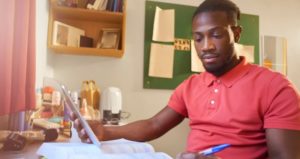
An Innovative Postexam Review Activity
We need to work more with students on seeing exams as something more than just grade generating experiences. Exams can be powerful encounters through which


We need to work more with students on seeing exams as something more than just grade generating experiences. Exams can be powerful encounters through which

For many faculty, adding a new teaching strategy to our repertoire goes something like this. We hear about an approach or technique that sounds like a good idea. It addresses a specific instructional challenge or issue we’re having. It’s a unique fix, something new, a bit different, and best of all, it sounds workable. We can imagine ourselves doing it.
Brief—that pretty much describes exam debriefs in many courses. The teacher goes over the most commonly missed questions, and the students can ask about answers but generally don’t. These kinds of debriefs don’t take up a lot of class time, but that’s about all that can be said for them. For some time now, I’ve been suggesting that students, not the teacher, should be correcting the wrong answers. The students are the ones who missed the questions.
I’ve been ruminating lately about tests and wondering if our thinking about them hasn’t gotten into something of a rut. We give exams for two reasons. First, we use exams to assess the degree to which students have mastered the content and skills of the course. But like students, we can get too focused on this grade-generating function of exams. We forget the second reason (or take it for granted): exams are learning events. Most students study for them, perhaps not as much or in the ways we might like, but before an exam most students are engaged with the content. Should we be doing more to increase the learning potential inherent in exam experiences?
We give students exams for two reasons: First, we have a professional responsibility to verify their mastery of the material. Second, we give exams because they promote learning. Unfortunately, too often the first reason overshadows the second. We tend to take learning outcomes for granted. We assume the learning happens, almost automatically, provided the student studies. But what if we considered how, as designers of exam experiences, we might maximize their inherent potential? Would any of these possibilities make for more and better learning from the exams your students take?
Get exclusive access to programs, reports, podcast episodes, articles, and more!